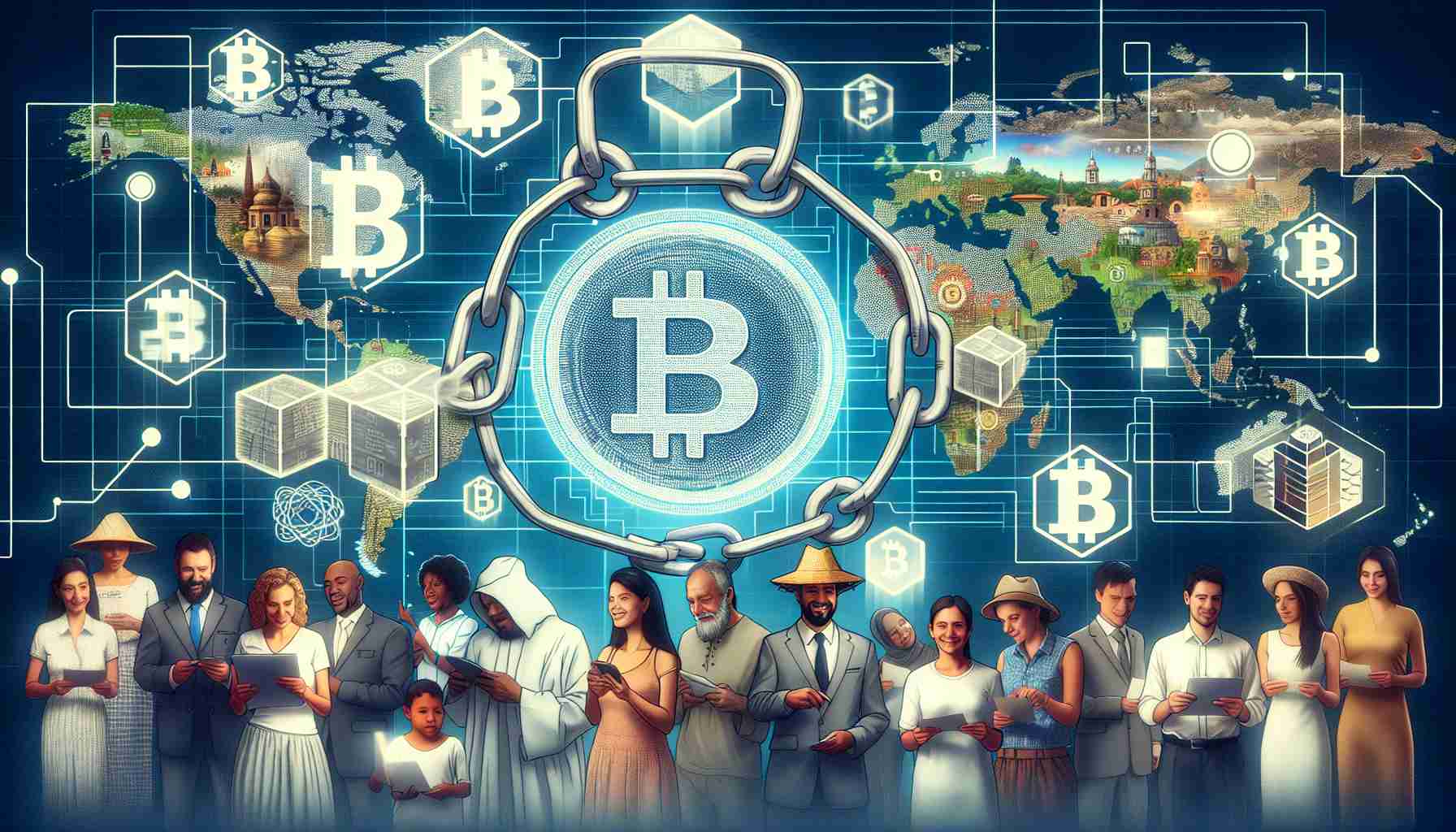Blockchain and cryptocurrency have the potential to revolutionize the financial landscape and provide opportunities for vulnerable and underrepresented communities. Paystand.org, the corporate social responsibility arm of Paystand, a blockchain-enabled commercial payments platform, is leveraging this potential to address the challenges faced by emerging economies in terms of financial inclusion.
In many Latin American countries, a significant portion of the population is unbanked or underbanked, lacking access to traditional financial services. This forces individuals and businesses to rely on informal lenders and personal networks for credit. However, there is a growing trend of using bitcoin as a solution in these regions. In El Salvador, for example, more than two million underbanked citizens utilize bitcoin in their daily transactions, enabling them to participate in a bitcoin circular economy. This adoption of digital currency not only helps overcome the challenges of the traditional banking system but also drives inclusive opportunities for the underbanked.
By integrating blockchain and bitcoin technologies with circular economy principles, there is a transformative opportunity for Latin America’s underrepresented communities and small and medium-sized enterprises (SMEs). These technologies can provide access to capital, fueling the growth of SMEs and empowering entrepreneurs.
Recognizing the importance of education in this transformation, Paystand.org is supporting organizations that educate and promote the use of bitcoin and blockchain technology in emerging communities. This approach aims to create a more inclusive financial landscape and foster economic growth. Through funding, mentoring, financial literacy education, and technology training, Paystand.org’s grantees are building community financial services that can create sustainable and regenerative economic practices.
One example is the project “My First Bitcoin” in El Salvador, which received financial support from Paystand.org. This initiative created a platinum-standard curriculum and provided bitcoin training to over 22,000 individuals, with more than 1,800 earning bitcoin diplomas. Another organization, the Digital Nest, is empowering Latinx youth from immigrant and farmworking communities through tech training centers, enabling over 3,100 young people to receive professional technology training and career development.
By adopting bitcoin-based economies and integrating cutting-edge financial technologies, these grassroots efforts are improving the circumstances of economically marginalized communities. Through this approach, Paystand.org aims to not only drive economic efficiency but also promote equitable growth across Latin America.
Paystand.org’s commitment to philanthropy is reflected in their funding structure. A percentage of Paystand Inc.’s annual revenue is allocated to cover the operations, donations, and grant-making efforts of Paystand.org. The organization aims to give up to 10 percent of their profits to support eligible nonprofit organizations that align with their mission.
As blockchain and cryptocurrency continue to evolve, their potential to unlock financial inclusion in Latin America and empower the underbanked is becoming more evident. With more organizations and stakeholders joining this movement, the impact of these technologies can be amplified, fostering a more inclusive and equitable future for all.
FAQ Section:
Q: What is Paystand.org?
A: Paystand.org is the corporate social responsibility arm of Paystand, a blockchain-enabled commercial payments platform.
Q: What is the aim of Paystand.org?
A: Paystand.org aims to address the challenges faced by emerging economies in terms of financial inclusion through leveraging the potential of blockchain and cryptocurrency.
Q: Why is financial inclusion important in Latin America?
A: In many Latin American countries, a significant portion of the population is unbanked or underbanked, lacking access to traditional financial services. This limits their opportunities for economic growth and development.
Q: How are bitcoin and blockchain being used to address financial inclusion?
A: Bitcoin is being used as a solution to financial exclusion in Latin America. For example, in El Salvador, over two million underbanked citizens utilize bitcoin in their daily transactions, allowing them to participate in a bitcoin circular economy.
Q: How can blockchain and bitcoin technologies benefit underrepresented communities and small businesses?
A: By integrating blockchain and bitcoin technologies with circular economy principles, these technologies can provide access to capital, fueling the growth of small and medium-sized enterprises (SMEs) and empowering entrepreneurs in underrepresented communities.
Q: How is Paystand.org promoting education in emerging communities?
A: Paystand.org is supporting organizations that educate and promote the use of bitcoin and blockchain technology in emerging communities. They provide funding, mentoring, financial literacy education, and technology training to create sustainable and regenerative economic practices.
Q: Can you provide an example of a Paystand.org-supported project?
A: One example is the project “My First Bitcoin” in El Salvador, which created a curriculum and provided bitcoin training to over 22,000 individuals, with more than 1,800 earning bitcoin diplomas.
Q: How does Paystand.org fund its philanthropic efforts?
A: Paystand Inc. allocates a percentage of its annual revenue to cover the operations, donations, and grant-making efforts of Paystand.org. They aim to give up to 10 percent of their profits to support eligible nonprofit organizations.
Definitions:
– Blockchain: A decentralized digital ledger that records transactions across multiple computers or nodes.
– Cryptocurrency: A digital or virtual currency that uses cryptography for security, operates independently of a central bank, and enables secure financial transactions.
– Financial inclusion: The process of providing individuals and communities with access to affordable and appropriate financial products and services.
– Circular economy: An economic system aimed at minimizing waste and making the most of resources by recycling and reusing materials.
– Underbanked: Individuals who have limited access to mainstream financial services and rely on alternative financial options.
– SMEs: Small and medium-sized enterprises.
Suggested Related Links:
– Paystand.org (Official website of Paystand.org)
– bitcoin.org (Official website of Bitcoin)
– World Bank – Financial Inclusion (Information on global financial inclusion efforts)
[embedded content]

